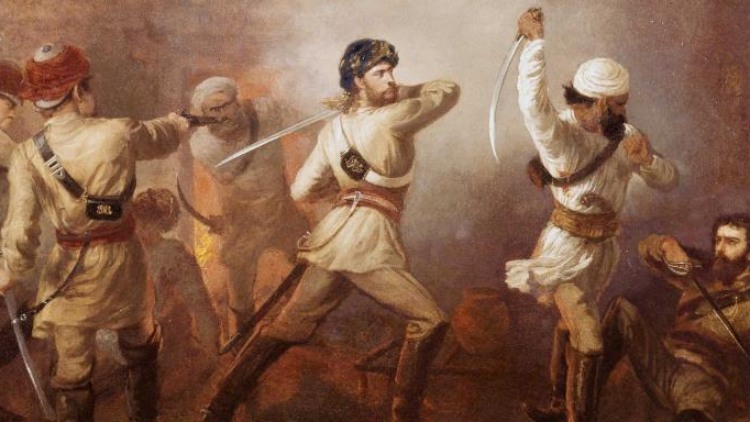
Saquib Salim
Saheed teri maut hi, tere watan ki zindagi
Tere lahu se jaag uthegi is chaman ki zindagi
Khilenge phool us jagah pe tu jaha.n shaheed ho
Watan ki raah me.n watan ke naujavaa.n shaeed ho
(Martyr, the life of your nation is in your death
This garden will prosper with your blood
Flowers will bloom where you lay your life
Youth of the nation martyr for the country)
Summers of 1857 witnessed the first combined effort of the Indians to liberate the country from the foreign rule of the English East India Company. The Indian sepoys of the English army, local rulers, landlords, peasants and urban civilians rose up in revolt against the repressive colonial rule. Hardly any region remained untouched from the passion of nationalism.
In Muzaffarpur, Bihar, flames of the First War of Independence were first felt when Robertson, the assistant magistrate, arrested a Jamadar of police, Waris Ali on 23 June, 1857. Waris has been applying for leave at the magistrate office for quite some time. It made the English suspicious of him. O
On 23 June, Robertson arrested him when he was riding on a horse towards Gaya. In his possession were found correspondence with Ali Karim, a nationalist landlord from Gaya. In the letters Karim had asked Waris to join him at once in Gaya as all the ‘preparations’ were complete. In another letter, Waris replied that he was ready to leave his job, property and family behind to join the nationalist forces.
Robertson arrested Waris for conspiring against the British. He was considered one of the leaders of the Indian nationalists and hence a ‘dangerous’ person. It did not take much consideration for Robertson to send him to Major Holmes for being hanged. On looking at his case, Major thought that being a leader Waris should be thoroughly interrogated. The English believed, wrongly, that they could extract more information about the plans of the nationalists from him.
Case of Waris was transferred to the magistrate at Dinapore. He was tortured to extract more information. A true nationalist and true to his cause, Waris would not divulge any information.
Frustrated with their attempts to get more information, the English hanged this great son of the soil on 6 July, 1857 in Patna. When brought to the noose, Waris addressed the people and said,
“If there is any real devotee of Swaraj here, let him liberate me!”
Needless to say, onlookers were not as courageous as Waris was, and this patriot laid down his life during the First War of National Independence.
shahīd jism salāmat uThā.e jaate haiñ
jabhī to gor-kanoñ se lahad nahīñ māñgī
(Bodies of martyrs do not rot, and remain intact
So, never asked for the soil from grave diggers
Saquib Salim is historian and a writer
